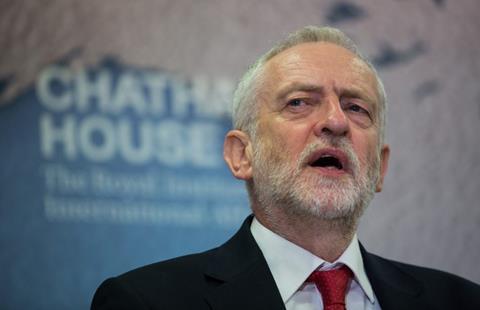Labour stressed it is “not prepared to ask the British public to eat chlorinated chicken”, as Jeremy Corbyn unveiled the party’s vision for Britain after Brexit.
Ruling out a “deregulatory race-to-the-bottom”, which would “damage people’s jobs and living standards”, Labour said it would negotiate a “new and strong relationship with the single market that includes full tariff-free access and a floor under existing rights, standards and protections”.
Corbyn added: “Labour would seek a final deal that gives full access to European markets and maintains the benefits of the single market and the customs union as the Brexit Secretary, David Davis promised in the House of Commons, with no new impediments to trade and no reduction in rights, standards and protections.”

He noted that Labour does not believe that deals with the US or China would be “likely to compensate for a significant loss of trade with our trading neighbours in the EU”, while it is “implacably opposed” to a revived TTIP-style deal with the EU.
“We are not prepared to ask the British public to eat chlorinated chicken and lower the standards of British farming,” said Corbyn.
“We would ensure there will be no reduction in rights, standards or protections and instead seek to extend them.”
Looking at the issue of EU workforce, Corbyn said Labour would design immigration policy around the needs of the economy, based on “fair rules and the reasonable management of migration”.
He also highlighted the fact that many of the UK’s laws and regulations are set and monitored by joint European authorities, making a nod to the European Food Safety Authority, which he stated “plays a vital role in monitoring the substances used in manufacturing or growing our food using the latest scientific evidence to assess whether substances are likely to have harmful effects on human or animal health.”
This story was originally published on a previous version of the Meat Management website and so there may be some missing images and formatting issues.















